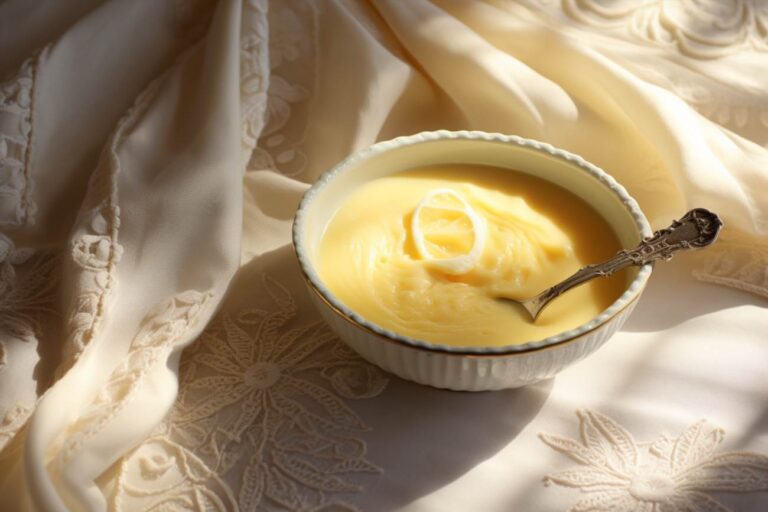When it comes to delightful citrus perfection, few things can rival the exquisite taste of lemon curd. This luscious and tangy spread has been a favorite for generations, adding a burst of sunshine to a variety of culinary creations. In this article, we’ll explore the world of lemon curd, its history, uses, and how to make your own batch of this zesty goodness.
The origins of lemon curd
Lemon curd has a rich history that dates back to the 19th century in England. It was originally known as „lemon cheese” and was made using a simple mixture of lemons, sugar, eggs, and butter. Over time, it evolved into the creamy and velvety spread we know and love today. Its popularity spread beyond England’s borders, becoming a beloved ingredient in various culinary traditions worldwide.
Key ingredients
To create lemon curd, you’ll need a handful of key ingredients:
- Fresh Lemons: The star of the show, providing that vibrant citrus flavor.
- Granulated Sugar: Adds sweetness and balances the tartness of the lemons.
- Eggs: Provides structure and richness to the curd.
- Butter: Adds a creamy texture and enhances the flavor.
These simple ingredients come together to create a harmonious symphony of flavors in each spoonful of lemon curd.
How to make lemon curd
Making lemon curd from scratch is a rewarding culinary adventure. Here’s a basic recipe to get you started:
- Grate the zest of fresh lemons and set it aside.
- Juice the lemons to obtain fresh lemon juice.
- In a heatproof bowl, whisk together the lemon zest, lemon juice, sugar, and eggs.
- Place the bowl over a pot of simmering water (double boiler) and stir continuously until the mixture thickens. This can take around 10-15 minutes.
- Remove the bowl from the heat and stir in the butter until it melts and incorporates into the curd.
- Strain the curd to remove any zest or bits of cooked egg.
- Pour the lemon curd into sterilized jars and let it cool before refrigerating.
Homemade lemon curd is a true labor of love, and the result is a silky, lemony wonder that you can enjoy on toast, scones, desserts, or as a filling for cakes and tarts.
Uses of lemon curd
Lemon curd is incredibly versatile and can be used in various culinary applications. Here are some delicious ways to enjoy this citrus delight:
| Application | Description |
|---|---|
| Toast Topping | Spread it on toast or English muffins for a zesty breakfast treat. |
| Scones Filling | Fill scones with lemon curd for a delightful tea-time snack. |
| Cake Filling | Use it as a filling for cakes, cupcakes, or tarts. |
| Yogurt Parfait | Layer it with yogurt and granola for a tangy dessert. |
| Fruit Dip | Dip fresh fruit like strawberries or apple slices into lemon curd. |
The possibilities are endless, and lemon curd can elevate your culinary creations to a whole new level.
Frequently Asked Questions (FAQs)
Can I use bottled lemon juice instead of fresh lemons?
While fresh lemon juice is recommended for the best flavor, you can use bottled lemon juice in a pinch. Just be sure it’s 100% pure lemon juice without any additives.
How long does homemade lemon curd last?
Properly stored in the refrigerator, homemade lemon curd can last for up to two weeks. Be sure to keep it in an airtight container.
Can I freeze lemon curd?
Yes, you can freeze lemon curd for longer storage. Just place it in a freezer-safe container and store it for up to six months. Thaw it in the refrigerator before use.
Is lemon curd gluten-free?
Yes, lemon curd is naturally gluten-free, making it a suitable option for those with gluten sensitivities or celiac disease.
What can I do with leftover egg whites from making lemon curd?
You can use leftover egg whites to make meringue, pavlova, or angel food cake. These desserts complement the tangy sweetness of lemon curd perfectly.
Zobacz także:






